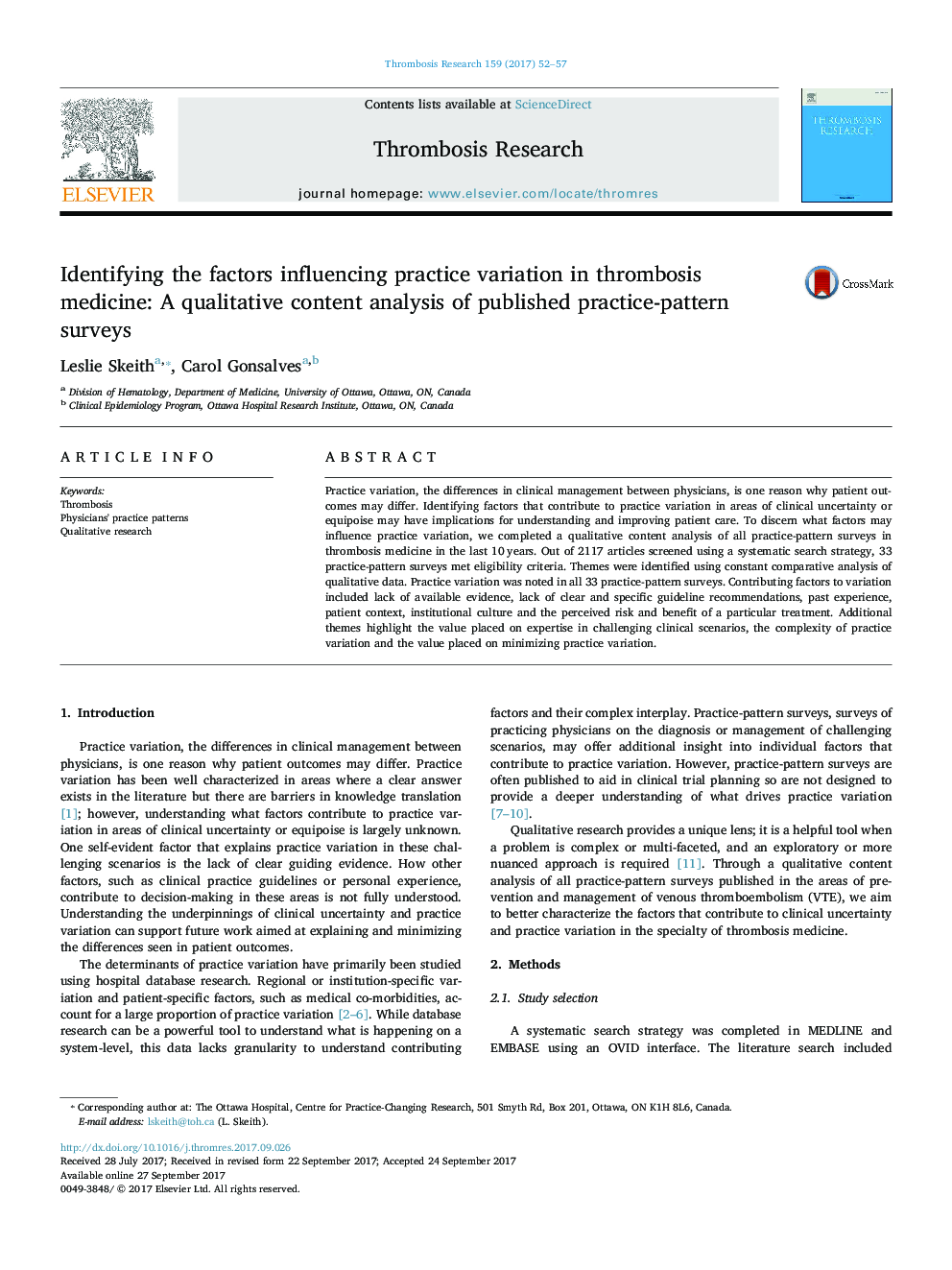| Article ID | Journal | Published Year | Pages | File Type |
|---|---|---|---|---|
| 5621772 | Thrombosis Research | 2017 | 6 Pages |
â¢Many factors contribute to the practice variation seen in areas of clinical uncertainty in thrombosis medicineâ¢Guidelines, experience, patient context, institutional culture and the perceived risk of treatment contribute to variationâ¢Research is needed to better understand how physicians in thrombosis medicine understand and acknowledge practice variation
Practice variation, the differences in clinical management between physicians, is one reason why patient outcomes may differ. Identifying factors that contribute to practice variation in areas of clinical uncertainty or equipoise may have implications for understanding and improving patient care. To discern what factors may influence practice variation, we completed a qualitative content analysis of all practice-pattern surveys in thrombosis medicine in the last 10Â years. Out of 2117 articles screened using a systematic search strategy, 33 practice-pattern surveys met eligibility criteria. Themes were identified using constant comparative analysis of qualitative data. Practice variation was noted in all 33 practice-pattern surveys. Contributing factors to variation included lack of available evidence, lack of clear and specific guideline recommendations, past experience, patient context, institutional culture and the perceived risk and benefit of a particular treatment. Additional themes highlight the value placed on expertise in challenging clinical scenarios, the complexity of practice variation and the value placed on minimizing practice variation.
